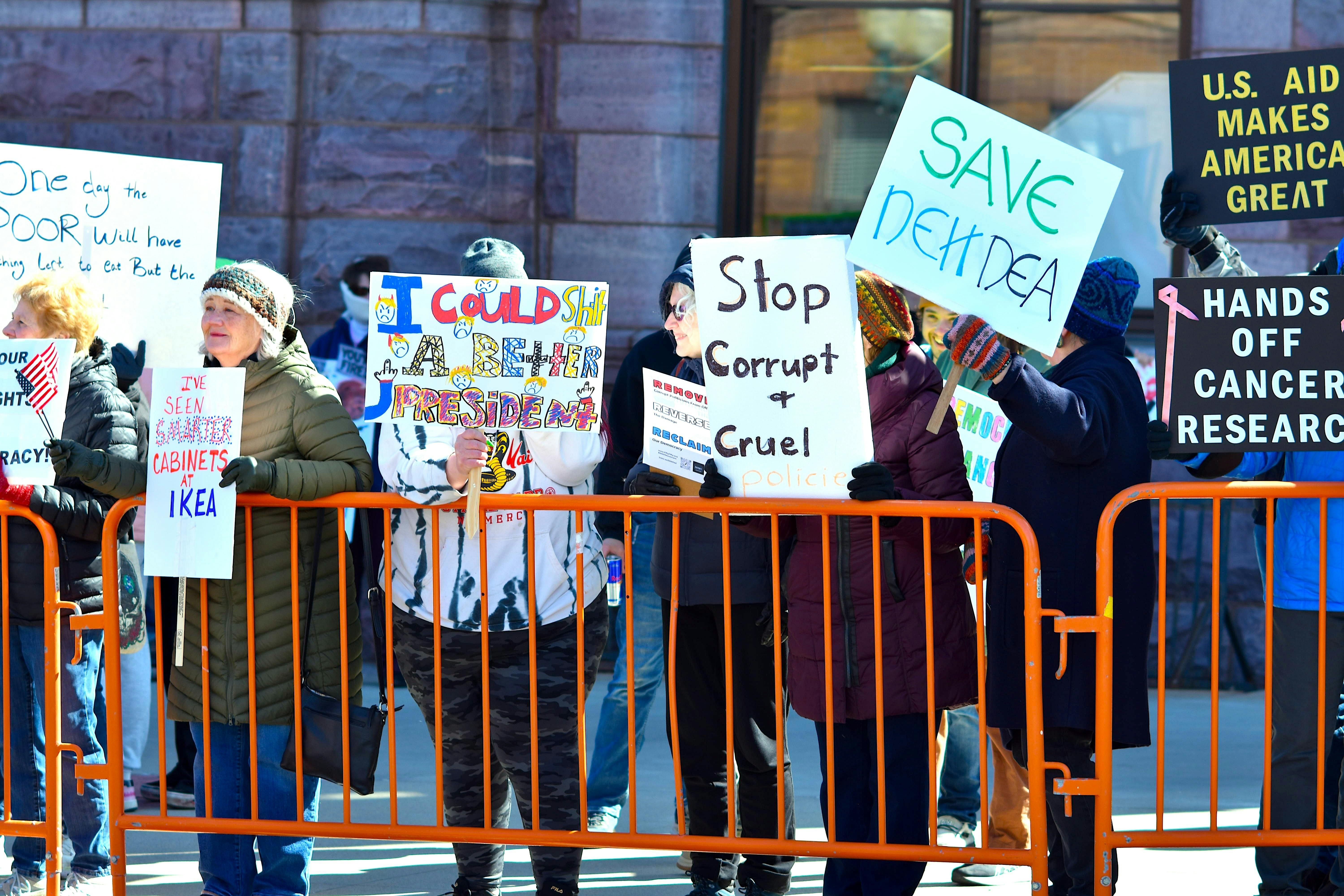Tensions Spike: US Tariffs on EU and China Ignite Global Stock Market Turmoil
Increased U.S. tariffs on European and Chinese goods become effective, resulting in a decline in global stock markets - Imposition of Extra U.S. Tariffs on EU and China Initiated - Stock Markets Plummet
In a recent turn of events, President Donald Trump pinned the blame on China for the ongoing trade spat, stating at a dinner with Republican politicians, "They don't know how to start [making a deal], but these countries are calling me to kiss my feet." Trump's comments came on a Tuesday, amidst speculation that various countries were aiming to reach a deal with the US.
European stock markets experienced modest gains on the same day inspired by hopes of negotiations over US tariffs. The German Stock Index (DAX) closed with a gain of 2.48 percent, while London's FTSE 100 and Paris's CAC40 increased by 2.71 percent and 2.50 percent, respectively. Meanwhile, Italy's FTSE MIB saw a gain of 2.44 percent.
However, the US stock market paint a bleaker picture. Despite an initial upward trend, stock prices plummeted later in the day. The S&P500 fell by 1.6 percent to 4982.77 points, dropping below the 5000-point threshold for the first time in almost a year. The Dow Jones and tech index Nasdaq also ended the day in the red, with the former closing 0.8 percent lower at 37,645.59 points, and the latter dropping 2.2 percent to 15,267.91 points.
The oil price followed suit and witnessed another decline, with US WTI crude trading below $60 per barrel for the first time since April 2021. In Asia, the picture was much the same: Hong Kong's Hang Seng Index fell by 3.1 percent, while the Chinese SSE Composite Index saw a drop of 1.1 percent. The Taiwanese Taiex Index recorded a loss of 5.8 percent, and Japan's Nikkei Index fell by five percent.
In response to the imposed tariffs, South Korea decided to support its auto industry with a two billion dollar investment. The government explained, "The decision to impose tariffs of 25 percent on these goods will significantly harm our auto industry."
While the trade landscape remains uncertain, U.S. economic analysts foresee a 45% risk of a U.S. recession due to intensifying trade tensions and economic instability. Investors are widely adopting cautious investment strategies and favoring defensive assets like utilities and healthcare stocks in anticipation of prolonged trade hostilities.
The European Union and China are pursuing a combination of retaliation and diplomatic measures. The EU paused its tariffs on US goods, while the threat of retaliation from China necessitated deeper economic integration with ASEAN countries. Global markets are currently grappling with the fallout from these protectionist measures and the prospect of further escalating tensions.
- China
- EU
- USA
- Washington
- Donald Trump
- Stock market price
- US President
- Beijing
- DAX
- European Union
- FTSE 100
- Paris
- FTSE MIB
- South Korea
Sources:
- Global trade tensions escalate as US imposes tariffs
- Economic Indicators - World Bank
Insights:
- The introduction of US tariffs in early April 2025 led to significant market volatility and economic uncertainty.
- The EU and China responded to the US tariffs with a combination of retaliation and diplomacy, pursuing free-trade agreements and exploring regional economic integration.
- Investors are expected to maintain cautious strategies and prefer defensive assets due to the risks of prolonged trade tensions.
- The Commission, following the escalation of trade tensions, has also adopted a proposal for a Council regulation on the introduction of a common system of value added tax, which could potentially mitigate the economic impact of the US tariffs on EU goods.
- Tariffs imposed by the US on both EU and China have led to a plummet in the Nikkei index in Japan, with the index dropping by five percent, as the global stock market price continued to plummet, affecting Asia as well.
- In London, despite initial hopes of negotiations over US tariffs, the FTSE 100 index ended the day with a 2.71 percent increase, while the risk of a US recession due to intensifying trade tensions and economic instability looms, with U.S. economic analysts foreseeing a 45% risk.




